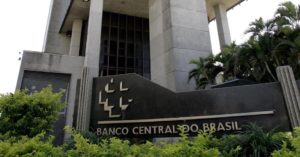Many people do not know that the central bank is an independent entity or linked to the State, it is not the same as Banco do Brasil. The Central Bank's role is to manage economic policy, that is, to guarantee the stability and purchasing power of each country's currency and the financial system as a whole.
But what is the Central Bank?
Let's go: The Central Bank of Brazil is responsible for controlling the amount of money that circulates in the country, the available credits, interest rates and how the economy is doing – among other actions related to the financial system.
When was the Central Bank created?
It was created on December 31, 1964 by Law No. 4,595. The Central Bank, like the other central banks in the world, is one of the main monetary authorities in the country, the main one being the National Monetary Council (CMN). The BC received this competence from 3 different institutions: the Superintendence of Currency and Credit (SUMOC), Banco do Brasil (BB), and the National Treasury.

What are the main products of the Central Bank?
Other Bacen activities also have an impact on our pocketbooks, but we do not always perceive this in such an evident way. Did you know that one of the main functions of the Central Bank is to control inflation? Well, let's explain better how this works next.
The Central Bank of Brazil (BCB) is responsible for regulating and supervising the entire National Financial System (SFN). This is a huge responsibility and it has an immediate impact on our lives, influencing factors such as prices, credit and trading in foreign currencies.
The competences of BACEN there are several, since its structure is composed of several different committees. Among them, the following stand out:
- plan and execute currency issue from the country;
- Function as the "government banker";
- serve as "bank of banks";
- inspect the country's financial system;
- Plan and implement activities related to monetary policy and exchange from the country.
Share value each year since 2000
O Brazilian central bank, also known as BACEN, is an independent federal agency that is part of the Brazilian Financial System, linked directly to the Ministry of Finance, which is our ministry of economy. Currently led by Paulo Guedes.
The value of each Bacen share is not publicly disclosed, as it is not a bank that anyone can invest in, it is closely linked to current policy, therefore, it is not possible to know what the current values of the shares of the Bank are. Bank since 2000,
Is it possible to have a Central Bank account?
The Central Bank is not a public body where anyone can register and have an account to carry out transactions, it is a controlling body, from the financial fiscal point of view, that is, it dictates orders in relation to the control over interest rates on financial processes in Brazil.
Is it worth getting a car loan?
As we mentioned above, it is not possible to carry out transactions of this type at the Central Bank, mainly vehicle financing, what you can check at the Central Bank is what is the interest rate on financing that the Bank determines for other banks to follow.
If your intention is to acquire a vehicle with good rates, Click here, We have exclusive articles on this subject.
Is it worth getting a personal loan?
The same goes for loans, the bank determines the Selic Rate, which will be responsible for you to know what the fixed values that the bank has determined are, it is not possible to make a personal loan directly through the Central Bank, do not confuse with Banco do Brasil. They are different bodies, with different actions.
About personal loan, we also have excellent tips that can make your life easier, click here and read other exclusive content.
How to work at the Central Bank?
It's an interesting question, as many of us would like a position at that level.
Central Bank Analyst
- Initial: R$ 18,057.94
- Final: R$ 25,745.60
Central Bank Attorney
- Initial: R$ 20,109.56
- Final: R$ 26,127.94
Central Bank Technician
- Initial: R$ 6,851.13
- Final: R$ 11,771.99
Telephones of the main points of service of the Central Bank
The complaint can be registered online through the website www.bcb.gov.br/? COMPLAINTS OR PHONE 145 or 0800-979-2345, this service is available from Monday to Friday from 8 am to 8 pm, with the exception of holidays.
What does the bank have in this period of crisis?
The figure, released last Monday, 23, by the BC itself, is equivalent to 16.7% of the Gross Domestic Product (GDP).
According to Bacen directors, the funds are intended to maintain liquidity in the system – that is, the availability of money so that financial institutions can normally carry out their operations with customers (companies and individuals).
What were the measures to combat the crisis?
The Bank informed that among the measures to combat the effect of the pandemic on the financial system are the reduction of the rates of reserve requirements on time deposits, from 31% to 25%, and the reduction of the share of reserve requirements considered in the Short-Term Liquidity Indicator (LCR) of banks.
Therefore, these two measures, announced on February 20th, represent the injection of R$ 135 billion into the system.


